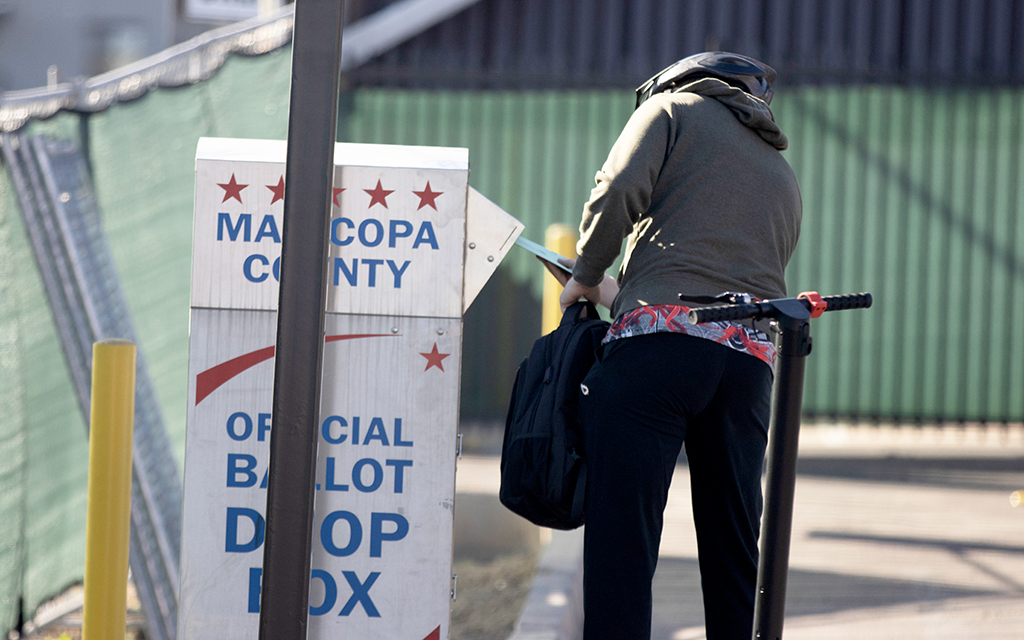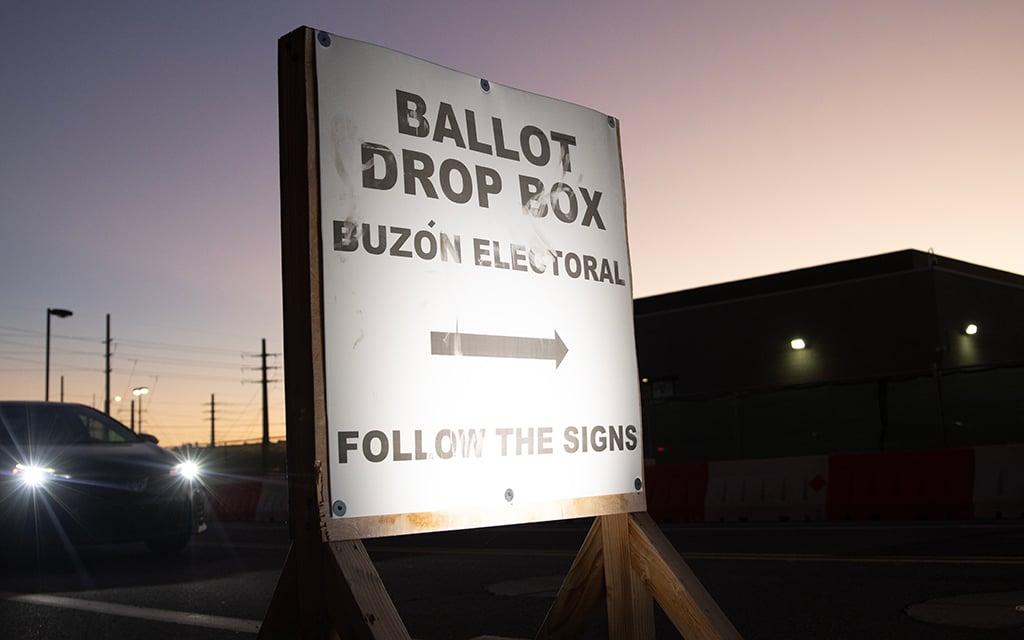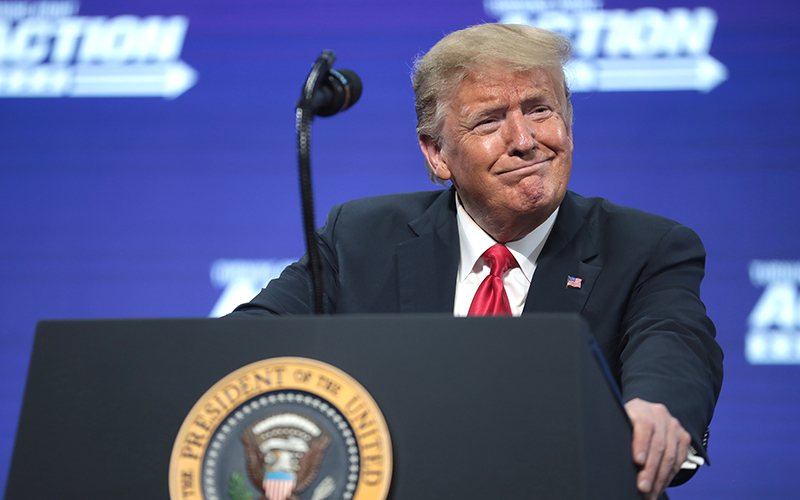WASHINGTON – Two recent reports identify Arizona as one of four or five battleground states for the 2024 election, with one analyst saying the state could be “one of the keys to the presidency.”
Sabato’s Crystal Ball from the University of Virginia Center for Politics said Thursday that Arizona – along with Georgia, Wisconsin and Nevada – will be toss-ups in 2024, after their thin 2020 margins helped elect President Joe Biden.
That follows an Inside Elections analysis from late April that lumped Arizona in with Georgia, Wisconsin and Pennsylvania as 2024 battlegrounds that will likely determine the next president.
“Arizona is one of the handful of most interesting and most competitive states in the country now,” said Kyle Kondik, managing editor for Sabato’s Crystal Ball.
Kondik wrote the Thursday report that said it currently appears that about 260 Electoral College votes will likely go to the Democratic nominee and 235 will likely go to the Republican. That leaves 43 votes up for grabs, including Arizona’s 11, as the candidates try to reach the 270 votes needed to win.
Biden eked out narrow wins over former President Donald Trump in each of the battleground states in 2020, winning Arizona by 10,457 votes out of more than 3.3 million cast, a margin of 0.3%.
Both Kondik and Erin Covey, a reporter and analyst for Inside Elections, say it is too early to say if any of those states will switch in 2024, but a lot will depend on who the Republican nominee is. Covey said it may come down to who appeals the most to the state’s independent voters.
“Arizona has, perhaps, more so than the rest of these other battleground states, a larger portion of independent voters who are liable to swing one way or the other kind of depending on how the Republican presidential primary shakes out, what happens in the Senate race, too,” Covey said.
“We think this could go either way, it’s kind of like a coin toss at this point,” she said.
Arizona analysts agree that a lot is riding on who Republicans pick as their nominee.
Sean Noble, a political consultant for Compass Strategies, said Arizona voters could lean Democratic if Trump is the Republican nominee or revert to the GOP if the party nominates someone else.
“Whether or not Arizona is a toss-up is going to be completely dependent upon who the Republican nominee is,” Noble said. “If it’s anybody but Trump, it will go Republican for sure.”
Rodd McLeod, an Arizona campaign strategist, said that although Trump won Arizona in 2016, voters in the state have rejected MAGA candidates and their platforms in the years since.
“It’s not like this is like a hardcore, right-wing state. I mean, it’s a purple state. It’s a purple state with a Republican lean, but it’s got to be a certain kind of Republican,” McLeod said. “If … it’s a Republican who’s super MAGA, then voters have said, ‘No thank you.’”

A voter in 2022 scootered to cast a vote at the Maricopa County Elections Department’s elections center dropbox. (File photo by Sophie Oppfelt/Cronkite News)
Kondik said Arizona is one of a few states to trend Democratic during and after Trump’s tenure. While it is still a toss-up, states like Arizona and Georgia are being pushed from “a reddish shade of purple to a bluish shade,” he said, because “big metro areas like Phoenix and Atlanta are getting bluer.”
“Arizona, you know, it’s become significantly less Republican over the past decade or so, particularly (during) the Trump era,” Kondik said. “It’s still a state you probably expect to vote a little more Republican than the way the nation votes, although maybe that’s something that could even change in 2024.”
Inside Elections said its baseline metric – based on the last four election cycles – gives Republicans a 1.8-point margin in Arizona. But that could shift with the 2024 nominees.
In the months leading up to the election, Kondik said, Arizona is going to be a huge focus for presidential campaigns. Many of Arizona’s races have attracted heavy party interest in the past several election cycles, he said – and with Arizona independent Sen. Kyrsten Sinema’s seat up in 2024, the state will again be a national focus.
“It’s one of the keys to the presidency and it’s one of the keys to control the Senate,” Kondik said. “I don’t necessarily know if it’s the most important state, but it’s one of the four, five, six, most important states.”


